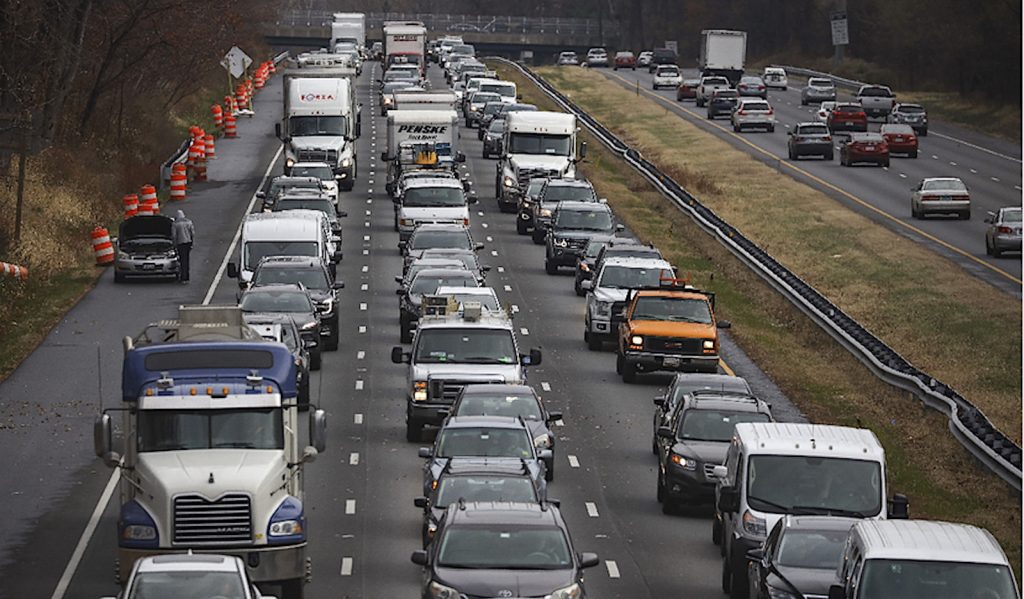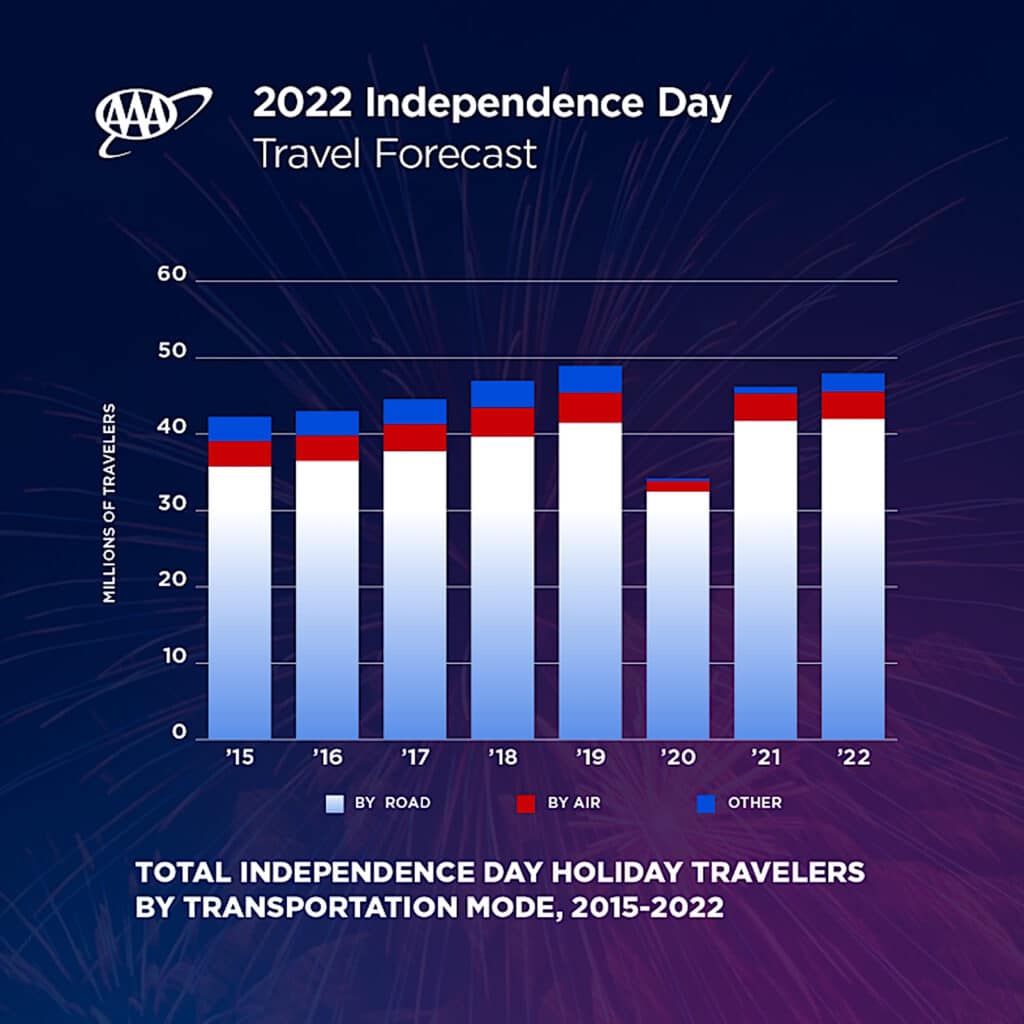Near Record Fuel Prices Have Americans Cutting Back Travel — Even as They Prep for July 4th
If you’ve been driving a little bit less lately, hoping to stretch your fuel dollars, you’re far from alone — new research found Americans, on the whole, drove 6% less in April compared to the same month in 2019, before the COVID pandemic struck.

The real test could come during the upcoming Fourth of July holiday, however. It’s normally one of the busiest events of the year from a travel perspective, and as many as 48 million Americans are expected to travel at least 50 miles from home during the extended holiday, according to AAA. And the road and travel service forecasts 42 million of them will do so by car — which would set an all-time record.
“The volume of travelers we expect to see over Independence Day is a definite sign that summer travel is kicking into high gear,” said Paula Twidale, senior vice president, AAA Travel. “Earlier this year, we started seeing the demand for travel increase and it’s not tapering off. People are ready for a break and despite things costing more, they are finding ways to still take that much needed vacation.”
Ready to move
In some cases, U.S. motorists may have been cutting back on routine travel to save up for the holiday. And there seems little question, according to the experts, Americans are bordering on desperate to get out-and-about after lengthy lockdowns and other restrictions during the pandemic.

And where some might have otherwise chosen to travel by air over the long Independence Day break, “Recent issues with air travel and ongoing concerns of cancelations and delays may be driving this increase,” AAA said in a pre-holiday report. “In fact, the share of people traveling by air will be the lowest since 2011.”
While there may be a record number of people taking to the roads this coming weekend, record fuel prices appear to have significantly impacted travel plans for many of them. A separate study by Cars.com revealed more than half of those surveyed will travel less than they would have if fuel costs hadn’t gone up so sharply. Fully 68% said they will stay within 50 miles of home. A year ago, a similar survey found 62% of the respondents setting a goal of driving “as far from the house as possible.”
“Road tripping for the Fourth of July is an American tradition, and understandably, gas prices are at the forefront of any road tripper’s mind right now,” said Cars.com Editor-in-Chief Jenni Newman. “Pent-up demand for travel is pushing vacationers to get creative with their road trip strategies to curb costs rather than forgo their adventures completely.”
Bang for their buck
Among those creative solutions, AAA reported more Americans are traveling in groups this Independence Day, a move that helps spread out the cost of fuel.

“Continuing a Memorial Day travel trend, 45% of Fourth of July travelers will bring company along to offset the cost of gas, and the number surpasses 50% for those between 18-34 and those with a household income below $50,000,” AAA said in a statement.
Beyond the Independence Day break, it’s anyone’s guess what American motorists will do. A study by Michael Sivak, chief analyst with Sivak Applied Research, indicates that drivers logged 6% fewer miles in April 2022 than they did in pre-pandemic April 2019 — the numbers adjusted for U.S. population growth. Data isn’t available yet for May or June, but even as the country continues to push away from COVID restrictions, the signs suggest drivers will continue to cut back.
That’s in line with surveys conducted earlier this year, including one AAA released in mid-March which found 59% of Americans planning to “make changes to their driving habits or lifestyle if the cost of gas rose to $4 per gallon.” Now, with fuel at an average of around $5, the impact could be more severe.
Curiously, there seems to be relatively little impact on what American motorists are buying — with one key exception. Demand is still high for pickups and big SUVs. Ford, Chevrolet and Ram can barely keep up with demand for their full-size trucks. Cadillac has a full order bank for the new, high-performance — and gas-slurping — Escalade-V.
The exception: demand for battery-electric vehicles has nearly doubled compared to this time last year. But with the ongoing semiconductor shortage, automakers can’t come close to meeting demand for most BEVs or, for that matter, hybrids and plug-in hybrids, either.
Auto Lovers Land
Comments
Post a Comment